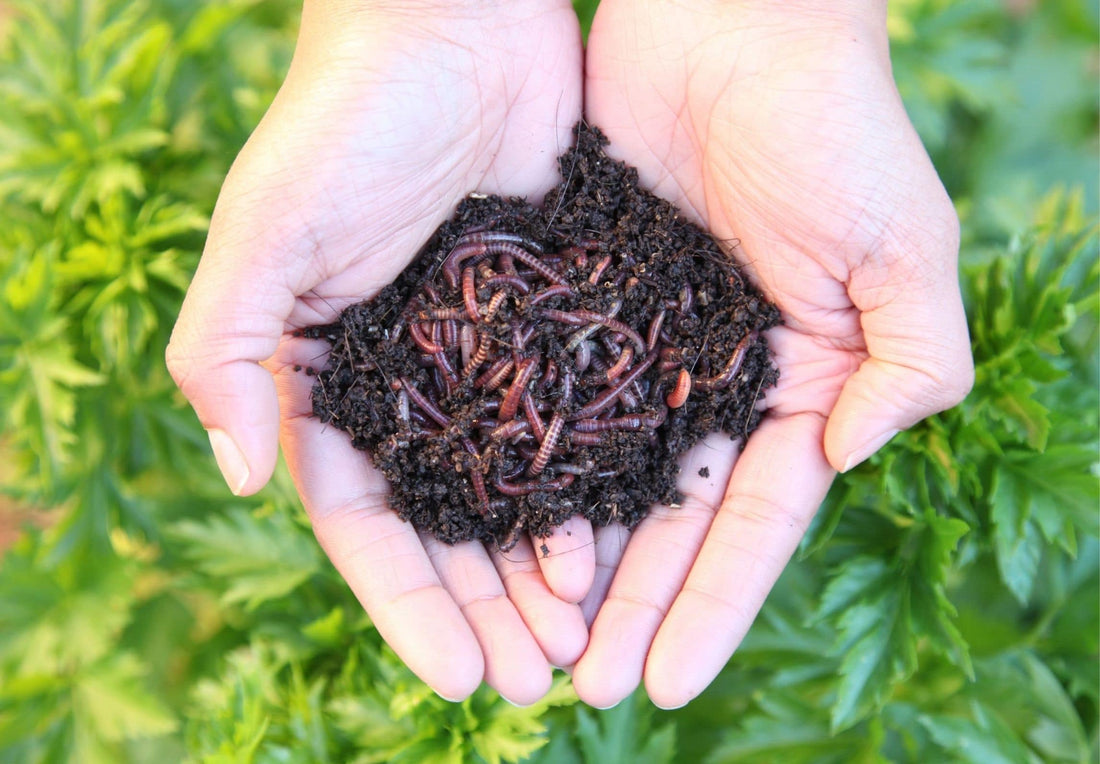
Earthworms are often seen as simple, slimy creatures that can’t do much more than wriggle their way through soil. But these small invertebrates play a surprisingly important role in the environment and have been called “nature’s helpers” for their ability to aerate soil, improve drainage, and break down organic matter.
However, earthworms can also cause problems when they become invasive species or disrupt delicate ecosystems.
Here will explore both sides of the debate on earthworms in houseplants—their benefits and drawbacks—and look at how human activity affects them.
This will hopefully help you decide what to do if you see a worm.
Overview of earthworms and their role in the environment
We often underestimate the value of earthworms despite their long, slender, and slimy appearance. But did you know that these slinky little creatures have an incredibly important role to play in our environment?

Earthworms help to aerate the soil, which allows air and water to penetrate more easily, enabling plants to grow and flourish. They also help to break down organic matter, which ultimately leads to the formation of fertile soil.
Plus, they make a tasty snack for a whole host of other creatures, including birds, mammals, and reptiles.
Next time you come across an earthworm, take a moment to appreciate all that it does to keep our ecosystem running like a well-oiled machine.
Benefits of earthworms in houseplants
Although earthworms are most commonly found in gardens, some people might want to incorporate it into their houseplant oasis.
These little wigglers can pack a big punch when it comes to keeping your plants healthy and happy. Not only do they help to improve soil structure by breaking down organic matter and adding nutrients, but earthworms also aerate soil and improve drainage. Plus, their castings (aka worm poop) contain important microorganisms that can benefit plant growth.
Benefits:
- Help aerate your soil
- Act as organic fertilizer
- Add nutrients essential for plant growth
Earthworms provide various benefits that can enhance your plant's growth and enable it to absorb nutrients that it can't obtain independently.
Drawbacks of having earthworms in houseplants
As much as we love earthworms and appreciate their role in composting, having them in our houseplants can have some drawbacks:
- Can weaken a plant if they cannot get enough nutrients.
- Overcrowding
- Messy
- Can lead to a smelly plant and room
Sure, they may seem harmless, but did you know that they can also eat away the organic matter in the soil and even munch on plant roots, ultimately leading to weaker plants?
Since there is little organic matter in most commercial soil, worms will likely eat your plants roots.
Plus, if they get a little too comfortable in their humble abode, they might bring their friends along with them, leading to overcrowding and a whole lot of mess.
Earthworms are hermaphrodites (they have both male and female sex organs). However, they still need to trade sperm to create viable eggs. So even if there is one earthworm in your houseplant soil it can lead to more and lead to overcrowding down the line.
Speaking of mess, if overcrowding occurs, you might experience the unpleasant aroma of dead worms due to the lack of moisture. Since earthworms tend to thrive in well moisture soil, if your plants soil isn't right for your little helpers, they can die and dead worms in your soil isn't exactly a nice smell.
To Earthworm or Not to Earthworm; that is the Question
As you can see there are both benefits and drawbacks to having earthworms in houseplants.
Ultimately, it's up to you and your plants needs. If you think your houseplant would benefit from the addition of these slimy little creatures, then go for it! Just make sure that you’re aware of the risks and properly monitor their population size and soil moisture.
On the other hand, if worms aren't for you, don't worry. There are many other ways to keep your houseplants healthy and happy.
Commercial soil has improved over the years and contains much of the necessary nutrients for the most common houseplants. Plus, there are a number of ways to aerate the soil and add nutrition without having to introduce earthworms.
So, don't be afraid of these wriggly critters—just know that their presence can have both positive and negative effects on your plants. With proper care, you can make sure your houseplants thrive no matter what route you choose.
Happy Planting!

